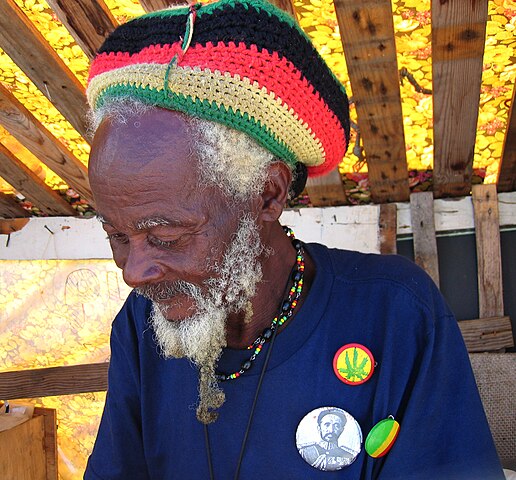The relationship between Rastafarianism and cannabis culture represents a significant, yet often underappreciated, facet of Western awareness. The connection merits a deeper examination, not only for cannabis enthusiasts but also for those interested in the broader dimensions of culture and history.
Rastafarianism In The West
Generally, when the term Rastafari is mentioned, it invokes associations with Bob Marley. The Jamaican singer and activist brought Rastafarianism to popular culture in the West through impactful lyrics and music, spreading political and spiritual messages. He also became an icon of cannabis culture.
In Mark Haner’s analysis of Marley’s impact, the author explains that his soothing sounds compiled with lyrical subtleties allowed the singer to reach a wide audience. Bob Marley was able to engage both those who enjoyed relaxing music as well as those who liked deeper lyrical meaning. While Bob Marley was an essential part of the Rastafarian movement, there is much more to dive into.
A Deeper Look
Rastafarianism, also spelled Ras Tafari, began in Jamaica in the 1930s as a religious and political movement. The Afrocentric ideology of its practitioners emerged primarily in response to the prevailing British colonial culture in Jamaica at that time. There are many overt and covert connections to the Bible, including the belief that God is testing the rastas through practices of slavery and economic injustice.
In Jamaica’s Rastafarian culture, cannabis is generally referred to as Ganja. It is assumed that cannabis originally came to Jamaica in the 19th century by way of the flux of Indian immigration, giving light to why the Hindi word Ganja is used by most Rastafarians. Since then, the plant has been an important component of rasta practices, and it is impossible not to mention the impact that cannabis has had on its Rastafari practitioners.
For Rastafarians, the use of Ganja is considered a profound ritual. They view cannabis as a sacred plant that enhances their spiritual connection, as described in Boekhout van Solinge’s article, “Ganja in America.” Rastafarian Religious ceremonies encompass prayer sessions, the consumption of ganja to attain a heightened state of meditation with Jah, and “bingis” (described as overnight drumming gatherings). Boekhout van Solinge also explains the connection between Ganja and the Bible. He writes, “To Rastafarians, ganja is not only a mere stimulant, it is the holy herb mentioned in the bible. Sometimes it is also claimed that the holy herb grew on the grave of King Solomon. The use of ganja is supposed to lead to a deeper faith, which explains why ganja is smoked at religious Rastafarian ceremonies.” It is clear that Rastafarians have a profound respect for cannabis and its place in the movement.
Conclusion
The political and spiritual movement of the Rastafarians has left its mark on Western Culture. Dreadlocks, reggae music, vegetarian diets, and the consumption of cannabis are just a few examples of how modern culture has integrated rasta practices into daily life. However, many do not look into the historical roots of these now-common practices. A bit of research opens the door to a greater understanding of the unique and impactful Rastafarian way of living—which goes way beyond simply smoking a bit of cannabis and listening to reggae.
© Kanab Inc. – Kanab Inc. is a Toronto based cannabis retail company that honors the historical significance and uses of the cannabis plant across cultures and civilizations. Kanab has now opened its first cannabis dispensary at the intersection of Don Mills Road and York Mills Road in North York region of Toronto, Ontario (South of 401, West of 404 / Don Valley Parkway, and East of Leslie). For more info, please visit: kanab.ca






